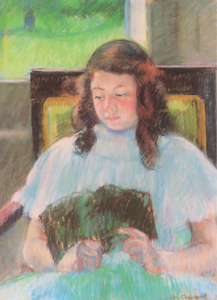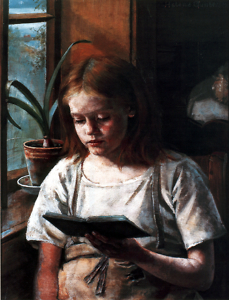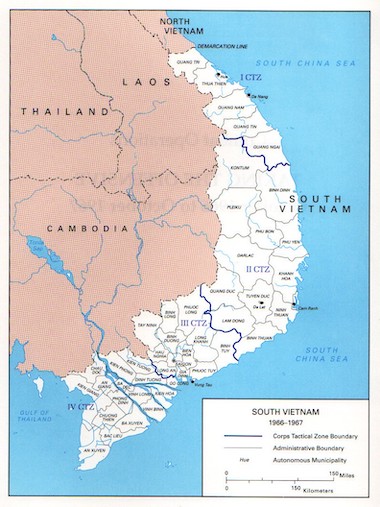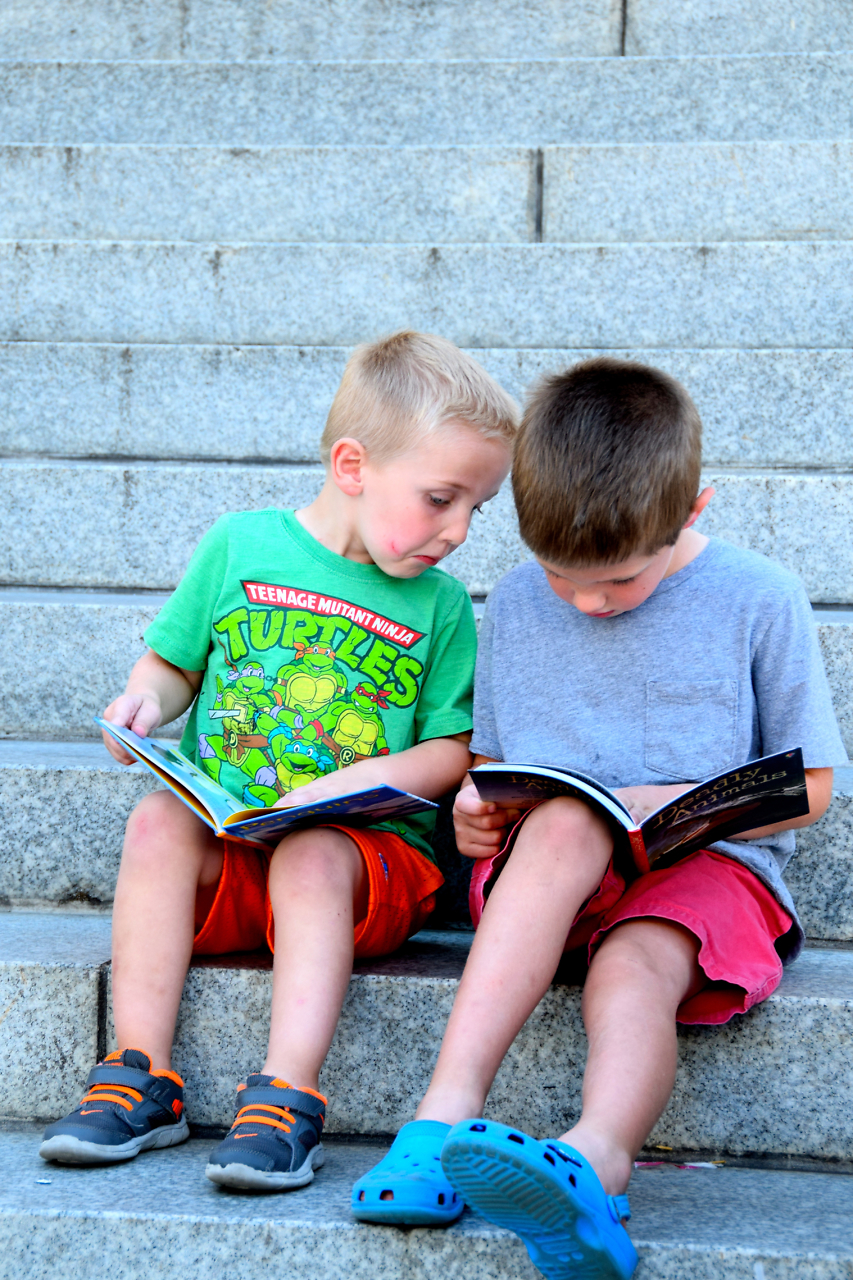Summer Reading
Once upon a time, Donna Parker and Trixie Belden saved a lonely little girl
FROM THE CHAPTER 16 ARCHIVE: This essay originally appeared on June 29, 2018.
***
A week after I finished first grade, my father drove me back to the elementary school. As we turned into the parking lot, I saw the principal standing outside the building. It was much later when I realized that no man in his right mind stood out in the midday Alabama sun if he could help it. My parents, obviously tired of my begging, must have called ahead for reinforcements.
 My father rolled down his window. “She wants to come to school this summer,” he said, nodding in my direction. That was an understatement. As I was waiting for the bus to take me home on the last day of school, I had heard an older child say he had to go to summer school. From the moment I jumped off the bus and ran into the house, I did nothing but beg my parents to let me attend this wonderful thing known as summer school.
My father rolled down his window. “She wants to come to school this summer,” he said, nodding in my direction. That was an understatement. As I was waiting for the bus to take me home on the last day of school, I had heard an older child say he had to go to summer school. From the moment I jumped off the bus and ran into the house, I did nothing but beg my parents to let me attend this wonderful thing known as summer school.
The principal leaned in the window and smiled, the sort of smile you get when the answer is going to be no, although I was too young to know that. “Well, you see, summer school is for those who didn’t pass their grade. And, unfortunately, you did.”
The window rolled up, and we made our way back home. My dad relieved that the battle was over. Me in tears.
Unlike most children, I did not look forward to summer vacation. But it would be wrong to call me a nerd. I enjoyed learning about things but often gave up quickly. Not because I was intellectually bored; no, I was not gifted by any definition of the term. I liked to learn what I wanted to learn and saw no need to go much further. Basically, I liked two things about school: the structure that made me persevere long after my instincts told me to quit and the built-in social life. Summer provided neither of those necessities.
It was a lonely time. My friends lived on the opposite side of our small town, which meant they might as well have lived on another planet. Our family had one car, and my father drove it to the cotton mill where he worked the 2-10 shift. So I had no transportation during the hours when my friends gathered to go to the pool or to the movies. Not only was I bored and lonely, I also knew I was missing out on major bonding experiences that would be the talk of the first few weeks of the school year. I hated summers.
Except for one thing: books.
Each summer became one long reading session. It’s not that I didn’t read throughout the school year. It was the thing all my teachers agreed upon: I was an avid reader (who more than once was caught reading when I should have been doing math). When I was in second grade, we had silent reading time each day after lunch. We could choose any book on the long bookcase under the classroom window-but only one, and we couldn’t leave our seat for another one if we finished early. I was always a fast reader, and there were days that I was forced to read the same book cover to cover five or six times.
I would read anything: the little sections highlighted in blue in our textbooks that were supposed to make math and science interesting to reluctant learners, the backs of cereal boxes that were my view during breakfast, the already marked-up copies of Highlights in doctors’ waiting rooms, and the romance magazines that my grandmother in England sent to my mother.
But from September through May, free reading always had to be curtailed. Unlike some of my classmates, I never chafed under assigned readings. There were very few books I found boring, so I didn’t mind assigned books. But I did mind when there wasn’t enough time in the day to read both assignments and my “fun books” — the books that came mostly from our school’s tiny library, the Bookmobile, or the Weekly Reader book club.
But in the summer, there was no one to tell me what or when to read. I could start in the morning and have a book finished by dinner, and no one cared. Well, that’s not quite true. My mother bought me two books each Saturday when we did our shopping at Murphy’s Mart. (Looking back, I realize that these were the equivalent of the books you find today in the dollar store, not quite new, definitely not popular. I didn’t care.) To make sure I would have something to read once the weekend was over, she gave me one and hid the other, which she handed over when I was especially bored or moody.
Every other Saturday morning, my mom drove me to the bookmobile. In my memory, it stood alone in a giant parking lot, which only shows how important it was to me because there were no giant empty parking lots in our small town. The bookmobile resembled a converted RV. Bookshelves lined each side of the interior, and my mom and I edged past other book lovers to find the books we wanted.
I remember the smell of books mixed with gasoline fumes and Alabama heat. I liked to dawdle, making sure I made the best choices for the long two weeks ahead, but the bookmobile was only one stop on my mother’s to do list in the hours before my dad left for work, so the clock was always ticking. We needed to get to the Piggly-Wiggly and back home before my father needed the car.
Although I have a doctorate in English literature, my summer reading choices gave no hint of my future career. I wasn’t poring over Dickens, Bronte, or Austen. I was not reading adult books, except for the time when I had the mumps and my father was sent to the bookmobile and returned with what seemed to be a thousand-page tome on Helen Keller.
 No, during the summers, books had to provide the companionship and friendship I was missing. In my loneliness, I was enticed by the idea of a group of friends who formed clubs, solved mysteries, and traveled to camp, the beach, even California. So my summers were spent in the company of series such as Donna Parker and Trixie Belden. These characters and their adventures became my friends and my adventures as the days dragged out and no one called to ask me to go with them to movies or Vacation Bible School.
No, during the summers, books had to provide the companionship and friendship I was missing. In my loneliness, I was enticed by the idea of a group of friends who formed clubs, solved mysteries, and traveled to camp, the beach, even California. So my summers were spent in the company of series such as Donna Parker and Trixie Belden. These characters and their adventures became my friends and my adventures as the days dragged out and no one called to ask me to go with them to movies or Vacation Bible School.
Even better, since all these books were series, it was indeed like having friends. I suffered when Trixie and Honey argued. I felt jealous when a new girl entered the group. I despaired when Jim disappeared. I sweated along with Donna when a heat wave struck her summer camp and no one wanted to eat. I wondered about them between books just the way I wondered what my actual friends were doing. But unlike my real friends, I knew I would catch up in weekly installments.
I have remained a voracious reader, but there was something magical (if a little sad) about the eagerness with which I read those series. It probably didn’t hurt that by the time I found them, they had been in print for many years and in some ways were already out of date. (Poor Donna Parker was certainly a product of the 1950s.) I never had to wait for a new one to be published. They were all there in a row on the children’s bookshelves at Murphy’s Mart, giving me something to look forward to when afternoons seemed especially long and lonely. Donna, Trixie, and their friends never disappointed.
Occasionally, I have thought of Donna and Trixie as topics for an academic paper: “Female Bonding in Middle-School Mystery Series” or “The Disappearing or Disappeared Parents in Middle-School Series of the 50s and 60s.” But I have always let them be.
Partly because of my Batman experience. When I was a kid, I watched Batman and Robin on TV while eating my after-school Little Debbie snack cake. I loved that show. I especially remember one episode that ended with Robin being in the mouth of a shark, his legs sticking out. The next day, I couldn’t concentrate on math or science or social studies, knowing Robin’s life was at risk. All I wanted to do was race home and discover that he was all right. (Spoiler alert: he was.) Years later, I came across the show and decided to watch an episode. I couldn’t make it through fifteen minutes. It wasn’t at all as I remembered it. It was stupid. And I don’t want to think of Donna or Trixie as stupid.
But the real reason I don’t reread those books is that they belong to another time and place. They belong to a girl who wanted friends and didn’t have any. And these characters became those friends for three months at a time. To read them now would be unfair: there is no way they could live up to the importance they had for me at that point in my life. It is kinder simply to remember them with fondness.
I would not wish that kind of loneliness on anyone. Still, there was something sadly sweet about those summers. There was an imposed realization that I would have to take care of myself, that if friends wouldn’t come to me, I would have to find them. So I did. Donna and Trixie — and their friends Honey, Jim, and Brian — saved my summers. It may not be too much to say that they also saved my childhood.

Copyright (c) 2018 by Faye Jones. All rights reserved. Faye Jones, dean of learning resources at Nashville State Community College, writes the Jolly Librarian blog for the college’s Mayfield Library. She earned her doctorate in nineteenth-century literature at Indiana University of Pennsylvania.


